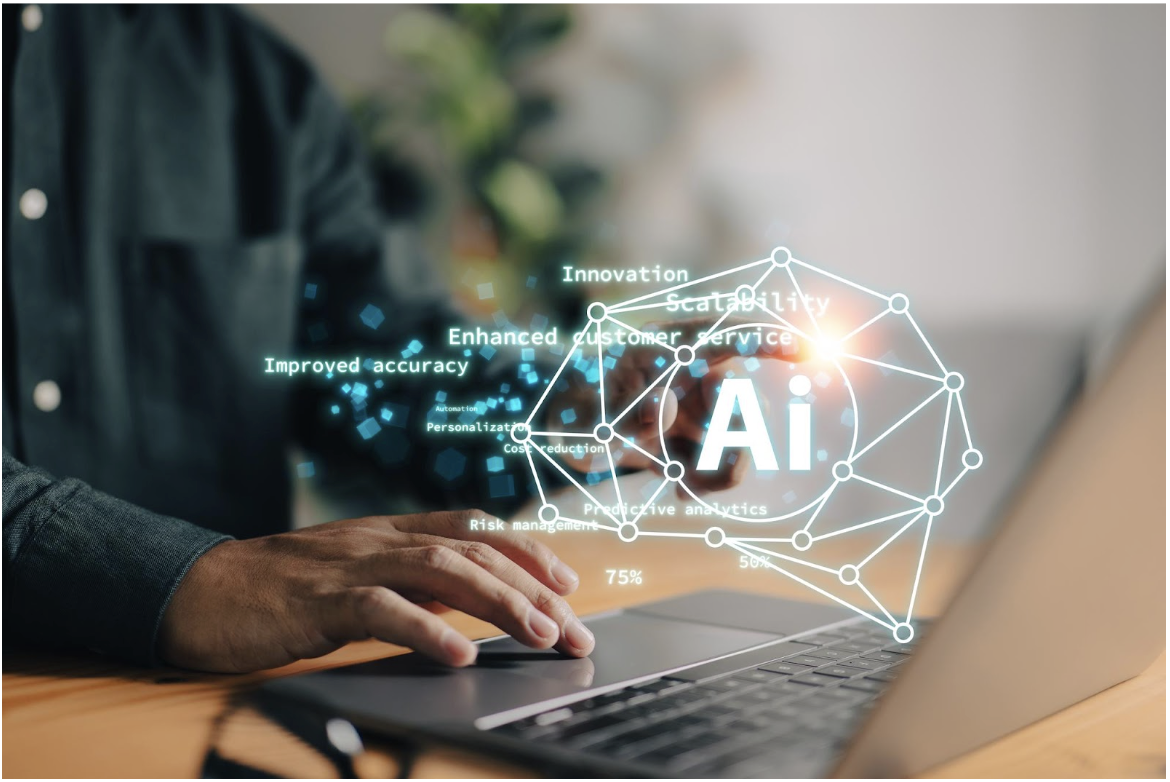
Gone are the days when artificial intelligence was regarded as a prospect; it is now an influential factor in reshaping software development. The utilization of AI tools for software development has led to a transformation in both the methodology and deployment of applications. Automation of repetitive coding jobs and prediction of problems before they occur are some ways in which AI software development tools are changing how software is developed. In today's world, every top-level development team that aspires for accuracy and uniqueness cannot do without AI assisted software development.
The traditional software development lifecycle is undergoing a significant transformation. It used to be characterized by prolonged manual coding and testing. However, the new AI powered software development tools are aimed at addressing some perennial issues experienced by developers, including very short project timelines, complex debugging exercises, and the requirement to scale maintainable code.
This change has been primarily motivated by the desire to achieve top-notch levels of effectiveness. Through the use of AI programming tools, it is possible for teams to accomplish tasks at high speeds, with minimal defects, while enhancing collaboration amongst themselves. Most importantly, AI assisted software development enhances the productivity of developers since it allows them to focus on key activities such as writing code, debugging programs, and DevOps.
The process-first mapping below shows how AI software development tools can be applied in every phase of the SDLC so that they are employed for maximum benefit.
AI development tools for code documentation examine project requirements, anticipate problems prior to programming and provide solutions. Natural language processing technologies ensure that user stories remain obvious throughout by inspecting documentation for any unclear points. This kind of information at an early stage lowers the risks of miscommunication and hence strengthens the project outcome.
This is where AI works best. AI code generative tools such as GitHub Copilot, Cursor and Claude can generate insights based on your input data just like intelligent human pairs do in programming code development. Through intelligent code completion, plain English suggestions are turned into working code snippets, thereby accelerating programming tasks significantly.
One has to find bugs and correct them although it’s a boring task. On-the-go AI debugging tools like Snyk Code or Amazon CodeWhisperer spot bugs, weaknesses, as well as performance bottlenecks within code instantly using AI powered code review.
The progress is often delayed by manual testing. Testim and Functionize are two examples of modern AI testing tools that employ machine learning in creating, running and sustaining automated tests. Such AI tools for app development change with the UI automatically which makes the test scripts less fragile and increases testing coverage without the need for human intervention.
AI code generation software adds value, especially during the last deployment stages and operations. AIOps solutions monitor application performance, predict failures, and respond to problems using ML. Harness runs Canary deploys and rolls back if issues arise to optimize CI/CD workflows using AI.
Below are some of the best AI tools for software development, ranked based on the ways they could be applied and offering an immediate advantage to you.
Using AI tools for software development has a lot of advantages that improve the whole process of developing software.
Using AI in software development can be very helpful, but you need to have a balanced view to deal with its challenges.
To reduce these risks, you need to be able to use the best AI tools for software development.
The use of AI in software development is still changing. The AI tools future promises even bigger changes.
There are a lot of AI powered software development tools available, but to get the most out of them at a business level, you usually need specific knowledge. Here’s when you should think about working with an expert team:
A partner can assist you in dealing with problems and getting the best AI tools for software development of your business. Get in touch with our AI development experts at Unico Connect to come up with a strategy that encourages innovation.
People are no longer asking "if" AI will be used in software development, but "how." These AI software development tools are now necessary parts of a contemporary, efficient, and creative development process. The most important thing is to consider them as more than simply tools; they are also agents of change. Start small by adding a coding assistant, but think about how AI software development tools may change your organization in the long run.
Want to use AI-powered automation in business software development? Unico Connect can help you create smart, seamless solutions.
What are the best AI tools for software development?
Copilot, Tabnine, and Ghostwriter for code; Snyk DeepCode and Sourcery for review; Testim and Functionize for testing; Harness and AIOps for DevOps are widely adopted and deliver measurable outcomes.
Can AI completely replace developers using AI programming tools?
No, evidence shows productivity gains, but quality and governance still rely on human oversight, code reviews, and domain expertise.
How do AI tools for software development improve productivity?
They compress context, generate code and tests, automate repetitive tasks, and speed feedback loops across the SDLC.
Which AI debugging tools and AI testing tools help with quality assurance?
Snyk DeepCode for security‑first analysis and Testim/Functionize for resilient, self‑healing tests strengthen QA and reliability.